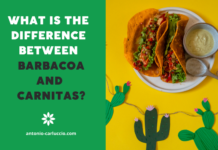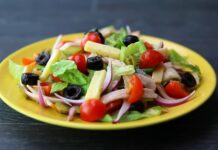
Pregnant women need to make sure that their diet provides enough. They also need to ensure that their body can endure the changes that will be occurring in their body.
To ensure a healthy pregnancy, the expectant mother needs to have a nutritious and balanced diet. Her diet should include the right balance of carbohydrates, fats, and proteins. She should also eat a wide variety of fruits and vegetables.
Maintaining a healthy and well-balanced diet is essential when you’re expecting.
During this stage, your body will require additional vitamins, minerals, and nutrients. You’ll need at least 350 extra calories daily as you go into the second and third trimester. Without proper nutrients, it may affect the development of your unborn child and may lead to complications.
One of the things most pregnant women stress about is food. Choosing nutritious and well-balanced meals can help keep expectant moms and their babies healthy. In this article, we’ll help shed some light on what expecting mothers can eat.
For more information on takeout food for pregnant women, follow this site.
Eating Facts during Pregnancy

It is usual for the calorie intake of a woman to increase during pregnancy. It is usual for most pregnant women to experience a rise in their daily calorie consumption by a few hundred. Eating for two is not the reason for the climb – it just rises naturally.
A pregnant woman’s blood volume increases. She efficiently absorbs iron, too. She, therefore, has to make sure that she consumes more iron so that she and her unborn child will have enough supply of oxygen.
Weight gain in pregnant women varies depending on the weight of the woman before pregnancy and some other factors. If the woman is by nature underweight, she gains the most. If she is overweight, she should have a considerable increase in weight.
Best Foods for Pregnant Women
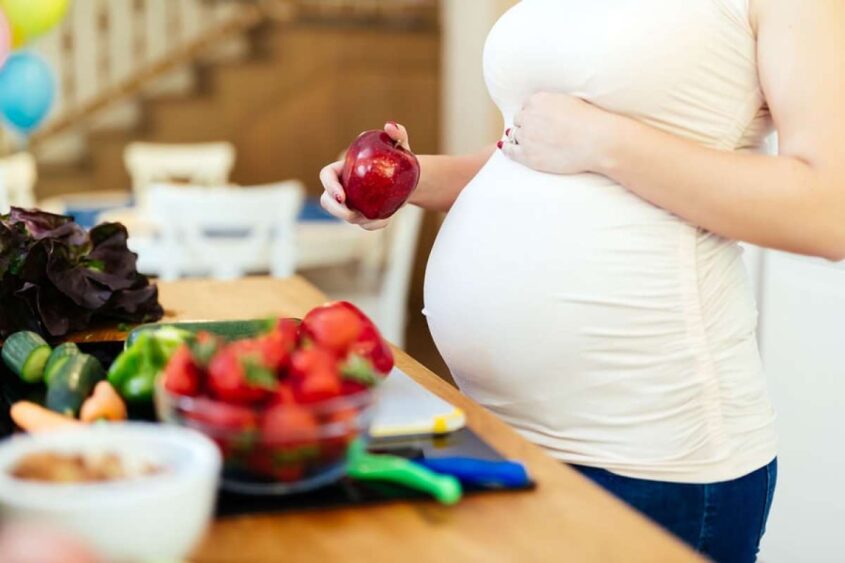
The goal during pregnancy is always to eat nutritious food. The diet should always consist of the five food groups – dairy products, lean protein, whole grain, fruits, and vegetables.
OB-GYNs and nutritionists recommend that pregnant women should have a half plate of fruits and vegetables. The remaining portion of the plate should contain lean pork and whole grains. It is also best to consume a dairy product during every meal.
Pregnant women should never go on a diet or try to lose weight unless ordered by her OB-GYN. Both the expectant mother and her baby need to keep healthy by consuming proper nutrients. You will anyway lose weight after your baby is born.
If you are a vegetarian, you can continue to be one while you are pregnant. A vegetarian diet will still be able to provide your baby with all her nutritional needs to develop and grow.
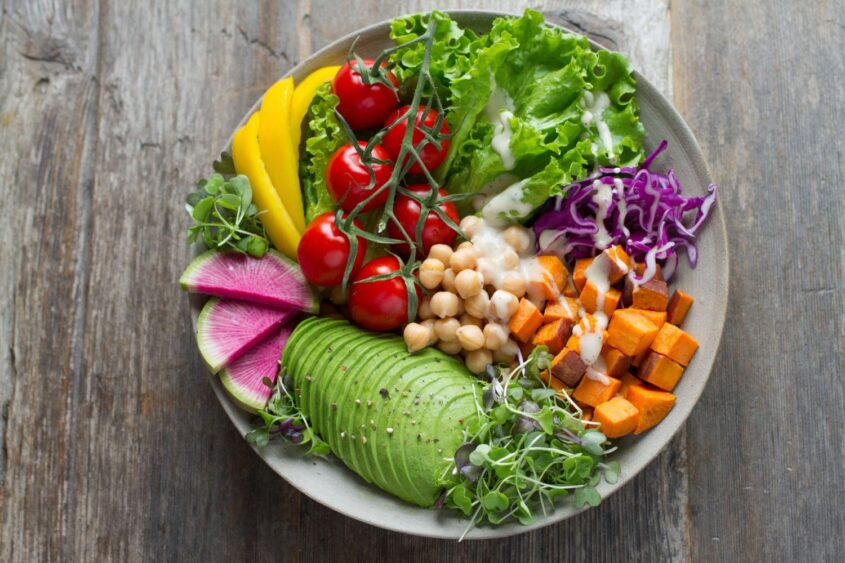
You need to make sure that you eat a wide variety of food that contains the right amounts of calories and proteins for you and your unborn child.
Dairy. During pregnancy, you are required to consume additional calcium and protein to meet the growing demands of your baby. Dairy food contains two types of protein, whey and casein.
Dairy products are the ideal source of calcium as well as specific nutrients such as magnesium, zinc, phosphorus, and vitamin B. Those that contain probiotics are suitable for the digestive health and reduce the possibility of complications. Greek yogurt is infused with high amounts of calcium compared to other types of dairy products.
Sweet potatoes are infused with high amounts of beta-carotene, which converts into vitamin A. It is necessary for proper growth and development of the tissues and cells. Therefore, it is required for a healthy fetus.
Pregnant women are advised to increase their intake of vitamin A by up to 40%. However, they should avoid getting their dose of vitamin A from animals. Sweet potatoes also contain fiber, which can lower your blood sugar, enhance digestive health, and fill your tummy.
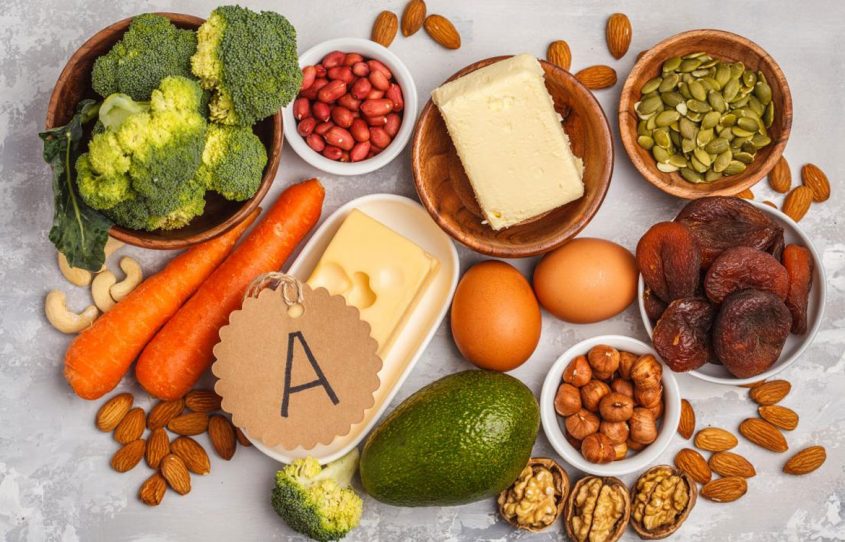
Dark and leafy greens. Dark and leafy green vegetables are loaded with nutrients essential for pregnant women. That includes broccoli, spinach, and kale, among many others. These ingredients are rich in vitamins A, C, K, fiber, calcium, potassium, iron, and folate. They are also filled with antioxidant properties that offer numerous health benefits.
The fiber content helps prevent constipation, which is common among expecting women. Dark and green leafy veggies are also associated with reduced risk of having a low birth weight.
Legumes. Legumes are an excellent source of protein, iron, fiber, calcium, and folate. Some varieties have high amounts of potassium and magnesium.
This group also includes peas, beans, chickpeas, peanuts, soybeans, and lentils. Vitamins are necessary, especially during the first stages of pregnancy, particularly in the first trimester.
Lean meat. That includes pork, chicken, and beef, which are all ideal sources of protein. Both pork and beef contain choline, iron, and B vitamins.
Since the blood volume of pregnant women tends to increase, pregnant women should get sufficient amounts of iron, especially during their third trimester. Lack of iron may lead to iron deficiency, low birth weight, and premature birth.
What to Eat When You are Pregnant and do not Feel Well

Pregnant women often do not feel well. They may have morning sickness, constipation, or diarrhea. There will be times when they do not feel like eating. There will also be times when they find it hard to swallow food.
Here are some suggestions on what pregnant women can eat when they are not feeling well:
*Morning Sickness
Eat frequent yet small meals throughout the day.
Eat cereals or crackers before getting up from bed
Avoid fried, fatty, and greasy food.
*Heartburn
Eat frequent yet small meals throughout the day.
Drink milk before eating
Avoid citric beverages and food and beverages with caffeine.
*Diarrhea
Eat food high in dietary fiber (oatmeal, banana, applesauce, refined wheat bread) because they help absorb water.
*Constipation
Eat a lot of fruits and vegetables.
Take fiber supplements (check first with your doctor)
Drink 6-8 glasses of water daily.
Bottom Line

When women become pregnant, their calorie intake also increases. While most people think that a pregnant woman eats for two, the truth is, her caloric requirements go up. The body of a pregnant woman absorbs iron better.
At the same time, the blood volume also increases. Hence, pregnant women should consume more iron. That ensures that she and her baby get enough oxygen supply.
Whatever you consume when you’re pregnant will affect you and your baby’s well-being. At the same time, it can also change the development of your fetus. When the nutrients and calories are increased, it is essential to choose nutrient-dense foods.
Women usually gain weight during their pregnancy. However, it is crucial to consume the right food to maintain a healthy and balanced lifestyle.


